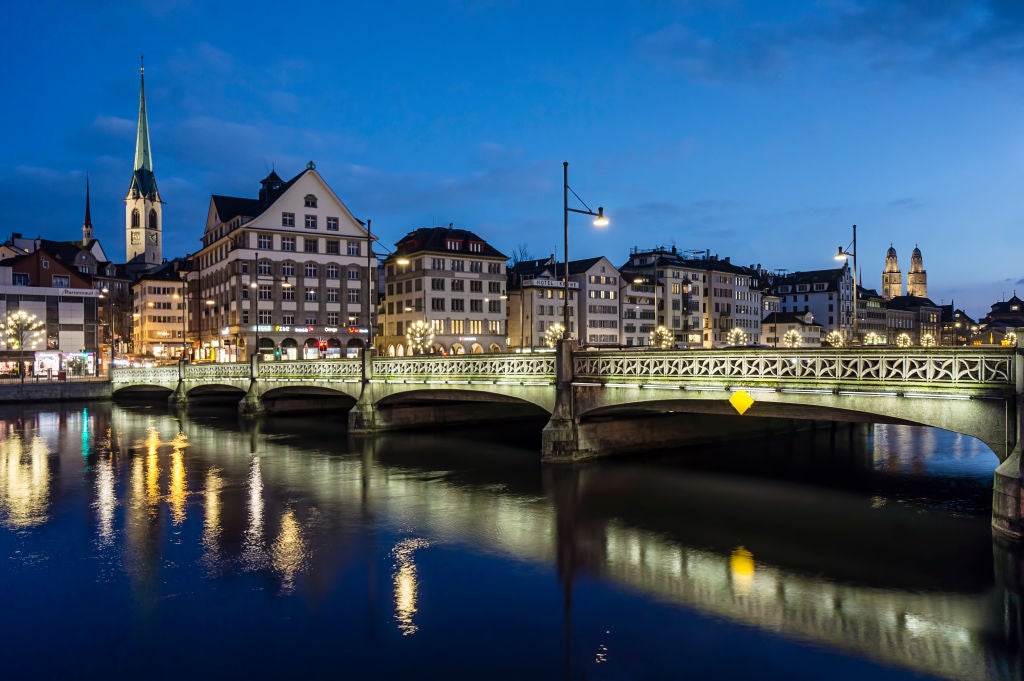
Largest Cities in Switzerland Investment Strengths
Switzerland is renowned as a global hub for private investment, a producer of high-quality chocolate and a destination that offers tourists everything from skiing holidays to city breaks. It is the cities that come under the spotlight here as we identify the five largest urban areas in Switzerland – Zürich, Geneva, Basel, capital city Bern and Lausanne – and look into their investment strengths.
1. Zürich
Population: 435,000

Discover B2B Marketing That Performs
Combine business intelligence and editorial excellence to reach engaged professionals across 36 leading media platforms.
Zürich is located on the lake it shares a name with in north-central Switzerland, 24km from the border with Germany (with German the most spoken language in the city). It has a metropolitan population of around 1.8 million. Zürich is one of the major financial hubs in the world, despite being much smaller than its competitors in this field such as New York, London, Singapore and Hong Kong. ABB, UBS, Credit Suisse, Swiss Re and Zürich Financial Services have their headquarters in the city, and it is one of the most prominent global cities when it comes to the private wealth industry. It also hosts the Swiss Stock Exchange and is a leading global location in the trading of gold. Away from finance, Zürich holds industrial strengths in areas such as light industry, machine and textile industries and tourism. The city is renowned for its safe, clean environment, offering a high quality of life. It is also highly regarded for its educational offering, with the Swiss Federal Institute of Technology and the University of Zürich being considered among the best higher education facilities in the world.
2. Geneva
Population: 202,000
Geneva’s name is synonymous with politics and diplomacy (the Geneva Conventions are treaties that established international legal standards for humanitarian treatment in war). The city sits in the west of Switzerland, close to the French border (French being the most spoken language there). It hosts many international organisations, among them the UN, the World Health Organization, the World Trade Organization and the Red Cross. Away from politics, Geneva is also a key global city for financial services, particularly private wealth management and commodity trading (mainly coffee, electricity, grains, oil, steel and sugar). Other industrial strengths in the city are watch-making, cosmetics, software, events, tourism and agriculture. Like Zürich, it is renowned for its impressive quality of life and educational offering. Its metropolitan population stands at approximately 500,000.
3. Basel
Population: 180,000

US Tariffs are shifting - will you react or anticipate?
Don’t let policy changes catch you off guard. Stay proactive with real-time data and expert analysis.
By GlobalDataLocated on the northern tip of Switzerland near the German border, and on the Rhine, Basel is famous for its universities (hosting the oldest in the country) and its museums, which mean that tourism plays a key part in its economy. However, like other key Swiss cities, finance is the most important industry in Basel, with the Bank for International Settlements located there. Also important is the chemicals industry, and Basel hosts headquarters for the likes of Novartis, Roche and Lonza. Other key industries are agriculture (particularly forestry or lumber production), media, air travel (Swiss International Air Lines is located on the city’s outskirts), trade fairs and manufacturing. German is the most spoken language in Basel.
4. Bern
Population: 144,000
Bern may be Switzerland’s capital city, but it falls under the shadow of Zürich and Geneva when it comes to economy, tourism and investment. As the capital, it hosts the usual national government services that would be expected, but away from the public sector Bern’s economy is reliant on retail, financial services, agriculture, tourism, manufacturing, construction, life sciences and healthcare. As with most cities in Switzerland it is renowned for its high quality of life and strong educational offering, hosting the University of Bern and the University of Applied Sciences. Bern is located in central-west Switzerland, midway between Zürich and Geneva, its metropolitan population stands at 660,000 and German is the most spoken language in the city.
5. Lausanne
Population: 140,000
Lausanne sits on the banks of Lake Geneva in western Switzerland, close to the French border (indeed, French is the most spoken language there). As with its larger compatriots, the city’s economy is reliant upon the financial services industry, but other strengths are in manufacturing, transport, IT, biotechnology and retail. Its metropolitan population stands at around 420,000, and Lausanne is considered one of the fastest-growing locations in Switzerland.
All figures are approximations as of January 2020, based on numbers from the Switzerland Federal Statistical Office. Please note that when the language German is referred to, each city tends to speak its own dialect.





